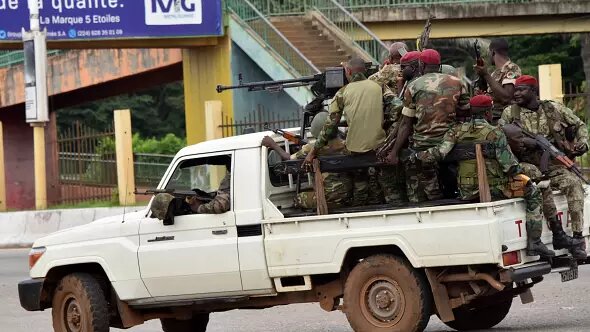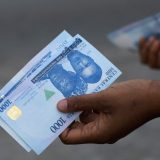According to a document from the Economic Community of West African States, Guinea’s ruling junta decided to relinquish control to civilians after two years after being threatened with impending sanctions (ECOWAS).
According to a paper sent by the junta on Friday and shared on social media, “in a dynamic compromise, the experts of ECOWAS and Guinea have jointly established a consolidated chronogram (calendar) of the transition extended over 24 months.”
The start of this 24-month term is not specified in the agreement.
After the elections, Colonel Mamady Doumbouya has promised to turn over control to civilians. Prior to taking power, the junta announced that it would rule for three years while holding legitimate elections and enacting significant reforms required for what it refers to as the “refoundation” of the Guinean state.
violent fights during the anti-junta protest in Guinea
Such a delay, according to ECOWAS, is unacceptable. The authorities were given one month to propose a “fair and acceptable” timetable by the member state leaders gathering in New York on September 22. If they failed to do so, “more severe penalties” than those already placed on the country would be implemented.
Ibrahim Traoré takes the oath to lead the transitional administration of Burkina Faso.
According to the ECOWAS document, the timetable shall be submitted at the following summit “for its acceptance in order to initiate its execution.”
Before the year is up, ECOWAS will hold a regular summit.
On September 5, 2021, Colonel Mamady Doumbouya seized control by violently toppling President Alpha Conde, a civilian. Since then, he has assumed the presidency.
The transitional president of Burkina Faso will be inaugurated on Friday.
After the elections, he has promised to turn over to civilians. The junta earlier declared its desire to rule for three years in order to hold legitimate elections and implement significant reforms required for what it refers to as a “refoundation” of the Guinean state.
Such a delay, according to ECOWAS, is unacceptable. The authorities were given one month to propose a “fair and acceptable” timetable by the member state leaders gathering in New York on September 22. If they failed to do so, “more severe measures” than those currently in place would be enforced.
The bridges were never severed, though, and the Guinean government reiterated its willingness to engage with ECOWAS, which this week dispatched a mission to Conakry to negotiate a compromise schedule.
The three-year timeline was not “laid in stone” for the authorities, according to Guinean Prime Minister Bernard Goumou on Thursday.







